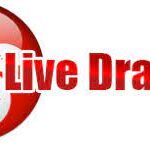
When purchasing online tickets for an online lottery, it is important to know your legal rights. Many scam artists will contact winners by e-mail, phone, or letter. You never leave your contact information when you purchase your ticket, so a lottery scammer will send you a notification by these means. The best way to avoid this scam is to keep your contact information confidential, and check the time limit before claiming your prize. Some prizes are large enough to require a personal delivery, so be sure to check the details carefully.
Legality
Many states have legalized online lottery games. The federal lottery is a legitimate form of gambling, and the lottery sites are not a scam. The websites that run these lotteries draw the same winning numbers as conventional lotteries. However, some states may have different rules. For this reason, you should check with your state legislature. Regardless, you should be sure to follow all rules and regulations regarding online lottery games. This way, you can be sure that your winnings are entirely yours.
Buying tickets online
Buying lottery tickets online is an easy process. However, if you have any questions, there are a few things you should keep in mind before you start buying your tickets online. Firstly, you should always check if the website has a working phone number. If the phone number is unavailable, you might have trouble placing your order. Furthermore, if you are purchasing tickets for a specific game, you should make sure that the website has a customer support number, so that you can get in touch with someone in person.
Deposit methods
Most online lottery sites offer a wide variety of deposit methods, including credit cards, bank transfers, and cryptocurrencies. You can also deposit using a prepaid credit card or bank account. However, you should do some research to ensure your safety. If you’re not sure about the security of wire transfers, consider using an e-wallet instead. This option is convenient and secure, but you must verify your banking information. If you don’t want to risk your personal information, you can use a prepaid card.
Jackpots
While jackpots in online lottery games are often smaller than those of traditional games, some games can have prize pots of several hundred million dollars or more. Mega Millions and Powerball are two examples of these games. The powerball lottery boasts the largest single ticket win in US history, a $1 billion prize. While some people prefer the smaller prizes of online lotteries, many others are content with the huge payouts that traditional games can provide.
Scams
If you win the lottery online, you should know the common scams associated with winning the prize. These scams involve limited time, a sense of urgency, and requests for personal information. Most lottery winners don’t report their losses, but lottery scams use the same techniques to get your money. Here are some of the most common ones. Be vigilant and report any suspicious activities to the lottery provider. You can also keep your credit card information secure by only sharing it with trusted lottery providers.
Legality of international lotteries
While you can buy lottery tickets from different countries, you can’t play foreign lotteries if you’re a citizen of the United States. In addition, violating postal anti-lottery laws can result in jail time and a fine of up to $1,000. However, some states allow people to play foreign lotteries in certain circumstances. If you’re considering playing international lotteries in the United States, here are some tips to keep in mind.
Scams that target US players
While playing online lottery games can be safe, you should keep an eye out for scams. Many of these scams are aimed at the elderly and lonely. Often, scammers use the lottery pandemic as an excuse to rip off these people. These scams involve phony lottery companies impersonating legitimate organizations and requesting money from unsuspecting lottery winners. Some scammers claim to be from Jamaica or the US Customs Service.
